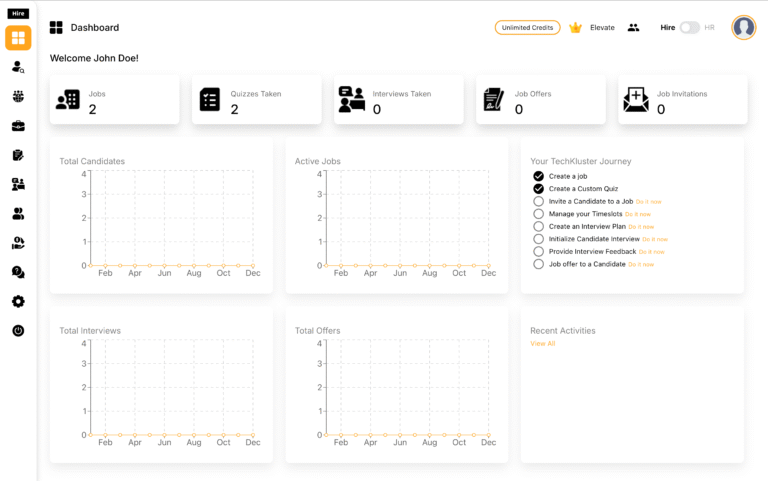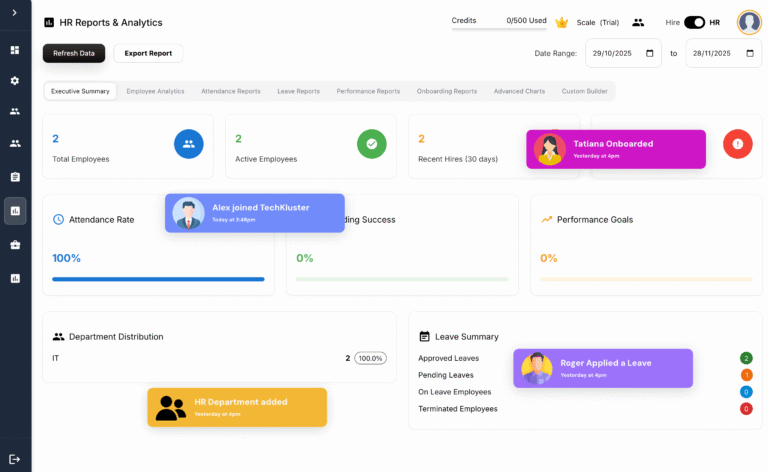The High Stakes of Modern Hiring In today’s hyper-competitive job market, top talent isn’t just looking for a job—they’re seeking an experience. With 75% of hiring managers reporting difficulty finding skilled candidates (LinkedIn), companies can’t afford missteps. Yet, outdated practices are driving away the very candidates they need to thrive. Here’s why your hiring process …
The High Stakes of Modern Hiring
In today’s hyper-competitive job market, top talent isn’t just looking for a job—they’re seeking an experience. With 75% of hiring managers reporting difficulty finding skilled candidates (LinkedIn), companies can’t afford missteps. Yet, outdated practices are driving away the very candidates they need to thrive. Here’s why your hiring process might be the culprit—and how to fix it.
1. The Slow Death of Delay
A prolonged hiring process is a top talent repellent. Research by Glassdoor reveals the average interview process now spans 23 days, up 30% since 2010. Top candidates, especially in tech or finance, often receive multiple offers within days. If your process drags, they’ll move on.
Solution: Streamline stages. Use technology for screenings, set clear timelines, and empower hiring managers to make faster decisions.
2. Communication Black Holes
Silence isn’t golden—it’s a deal-breaker. A CareerBuilder survey found 81% of candidates expect regular updates. Ghosting or vague feedback breeds frustration, signaling disrespect.
Solution: Automate status updates via email or SMS. Assign a point of contact to maintain engagement, even if the answer is “no.”
3. The Mirage of the Perfect Job Description
Vague or unrealistic job postings alienate talent. Listing 10+ “must-have” skills or omitting salary ranges deters applicants. Top performers seek clarity and transparency.
Solution: Focus on core competencies, highlight growth opportunities, and include salary bands. Use inclusive language to attract diverse candidates.
4. The Interview Gauntlet
Excessive interviews or unpaid assignments signal distrust. One startup lost a star candidate after requiring eight rounds and a 10-hour project—only to lowball an offer.
Solution: Limit interviews to 3-4 rounds. Respect candidates’ time by providing agendas and feedback promptly.
5. The Overlooking Potential for Pedigree
Prioritizing degrees or brand-name employers over skills and cultural fit excludes hidden gems. Google’s Project Oxygen found no correlation between academic pedigree and job performance.
Solution: Use skills-based assessments and behavioral interviews. Highlight adaptability and curiosity over rigid checklists.
6. Rigid Offers in a Flexible World
Top talent expects flexibility in remote work, benefits, or equity. A Harvard Business Review study found 80% of candidates would decline an offer lacking work-life balance.
Solution: Personalize offers. Ask candidates what matters most—whether it’s a signing bonus, flexible hours, or professional development.
7. Reimagine or Lose Out
Losing top talent isn’t just a hiccup—it’s a strategic failure. By accelerating processes, improving communication, and valuing candidate experience, companies can transform hiring from a weakness into a competitive edge. Audit your process today, or watch your ideal hires walk into a competitor’s arms tomorrow.
Act Now: The cost of inaction is higher than you think. Refine your hiring strategy—before your talent pipeline runs dry.





